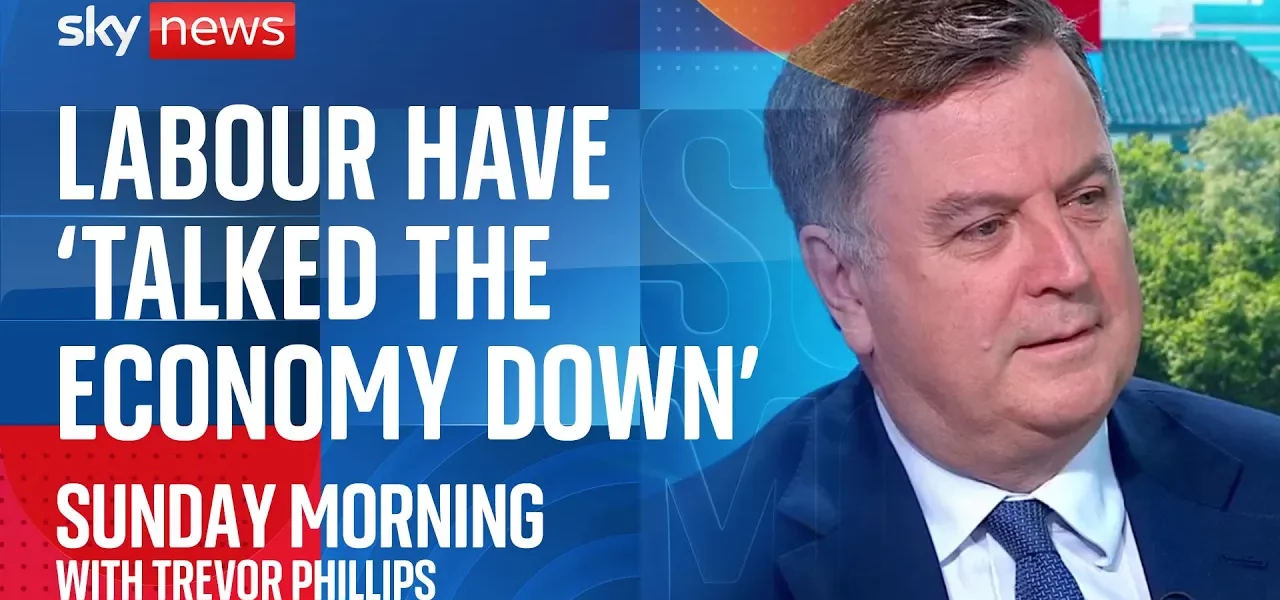Mel Stride Reflects on Politics, Policies, and Leadership Elections

In this comprehensive article, we delve into the insights shared by Mel Stride, the Shadow Work and Pensions Secretary, regarding significant political figures, economic strategies, and the implications of upcoming leadership elections. This discussion provides valuable perspectives on current issues affecting the economy and the political landscape.
Introduction
Mel Stride, a prominent figure in the political arena and the Shadow Work and Pensions Secretary, recently shared his thoughts on various pressing issues during an interview. This article aims to explore his reflections on notable political figures, the challenges surrounding economic policies, and the dynamics of leadership elections within his party. Stride’s insights not only highlight the intricacies of current political debates but also emphasize the significance of strategic decision-making in shaping the future of the economy.
Reflections on Alex Salmond
During the interview, Mel Stride took a moment to reflect on the legacy of Alex Salmond, a consequential figure in Scottish politics. Stride acknowledged Salmond’s congenial nature and his impactful political career.
Significance of Alex Salmond’s Tenure
Stride pointed out several key achievements during Salmond’s leadership, particularly during the 2011 elections when he secured a full majority at Holyrood. His decision to lead Scotland into the 2014 referendum was a pivotal moment in Scottish history.
- Secured a full majority at Holyrood in 2011
- Led Scotland into the 2014 independence referendum
- Influenced significant political discussions and decisions
Despite their differing viewpoints, Stride expressed his respect for Salmond’s contributions to the political landscape and extended condolences to his family and friends following Salmond’s recent departure from the public stage.
Economic Policies and Taxation
As the conversation shifted towards economic policies, Stride provided critical insights into the current government’s taxation strategies. He raised concerns about the implications of raising employers’ National Insurance contributions.
Concerns Over Employers’ National Insurance Increase
Stride emphasized that increasing employers’ National Insurance is detrimental, as it represents a tax on jobs, which could hinder economic growth and productivity. He argued that the government had boxed itself into a corner by previously committing not to raise certain taxes during the general election.
- Tax on jobs discourages employment growth
- Conflicts with government manifesto promises
- Limited options for government revenue generation
Capital Gains Tax: Implications and Concerns
Stride’s apprehensions extended to capital gains tax, where he warned that excessive increases could lead to decreased revenue. He explained that raising this tax too high, particularly on assets like property, could discourage investment and slow economic growth.
Strategies for Economic Growth
In discussing potential alternatives to tax increases, Stride highlighted the need for comprehensive growth strategies focused on boosting productivity and investment.
Welfare Reforms and Supply-Side Initiatives
Stride advocated for welfare reforms that could yield significant savings, as demonstrated during his tenure as Secretary of State for Work and Pensions. He mentioned that finding savings of around £12 billion could help alleviate pressures on employee National Insurance contributions.
Investment in Key Sectors
Moreover, he stressed the importance of investing in infrastructure, housing, and energy costs to stimulate economic growth.
- Implement comprehensive welfare reforms
- Enhance infrastructure projects
- Reduce energy costs to boost competitiveness
Leadership Elections and Party Dynamics
As the discussion progressed, Stride addressed the complexities surrounding the leadership elections within the Conservative Party. He expressed concerns over the electoral process and the need for potential reforms.
Electoral Process Concerns
Stride noted that the secret ballot system may have led to strategic voting rather than a focus on the most suitable candidate for leadership. He underscored the importance of considering whether the current electoral process serves the best interests of the party.
Future Leadership Support
When questioned about his support for any particular candidate, Stride remained non-committal but acknowledged the need for unity within the party moving forward.
Conclusion
In conclusion, Mel Stride’s insights shed light on critical issues facing the UK’s political landscape and economic strategy. His reflections on Alex Salmond’s legacy, concerns regarding tax policies, and the need for effective leadership reforms highlight the complexities of governance in today’s environment. As political discussions continue to unfold, it is crucial for policymakers to focus on fostering growth and productivity while remaining true to their commitments. For more insights on economic strategies and political discussions, explore our related articles on economic policy and leadership in politics.
“`




